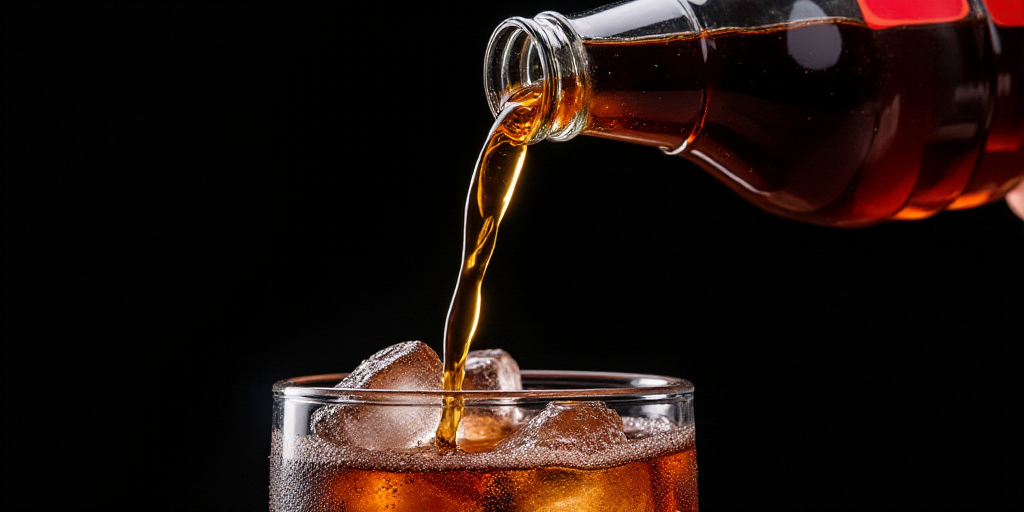Proposed Tax Increase on Sugary Drinks Deemed Insufficient by Analysts
The federal government has proposed an 87.3% increase in the Special Production and Service Tax (IEPS) on sugary drinks. However, experts argue that this measure alone is insufficient to reduce consumption.
Expert Opinions
Jacobo Rodríguez, a financial expert at Roga Capital, stated, “This measure has been implemented in recent years but has not yielded clear results. Without accompanying health programs from the federal government, it is unlikely to be effective.”
Rodríguez highlighted that the prevalence of diseases linked to sugary drink consumption has not decreased. Moreover, companies’ profits have remained stable due to Mexican consumers’ habits and the strategies employed by soft drink companies.
According to Mexico’s Health Secretary, one in three new diabetes mellitus cases and one in seven new cardiovascular disease cases are related to sugary drink consumption.
Despite 88% of Mexicans believing that consuming soft drinks is harmful to their health, 50% continue to do so out of preference. Forty-five percent consume them once a week, and 29% daily, as per a survey presented by President Claudia Sheinbaum.
“This tax increase alone will not impact consumption,” Rodríguez noted.
Industry’s Perspective
Janneth Quiroz, Economic Analysis Director at Monex Brokerage, explained that the tax’s impact depends largely on consumer demand elasticity—how willing consumers are to continue purchasing sugary drinks despite the price increase.
Quiroz recalled that in 2025, the increase was only seven cents per liter, from 1.57 to 1.64 pesos, with minimal impact on consumption. However, the announced 2026 adjustment is much larger, setting a quota of 3.0818 pesos per liter, potentially causing a more significant change in consumer behavior.
“This 87.3% increase is substantial. It’s possible that such a significant increase will also lead to notable changes in achieving the intended goals of this tax,” Quiroz explained.
Quiroz continued, “Eventually, producers will pass the tax increase onto consumers, resulting in higher prices for sugary drinks.”
Dual Objectives of the Tax Measure
The measure has dual objectives, Quiroz emphasized. It aims to discourage sugary drink consumption by raising their price and increase revenue for healthcare spending due to diseases resulting from high consumption.
Mexicans consume an average of 166 liters of soft drinks annually. A 600ml bottle can contain up to 15 teaspoons of sugar, accumulating in the body and causing kidney, cardiovascular diseases, diabetes, and other illnesses, according to the Health Secretary.
“It’s crucial to make this effort, and all collected revenue should address health issues related to overconsumption,” President Sheinbaum stated. “We anticipate presenting studies supporting the health damages caused by this type of beverage consumption.”
Key Questions and Answers
- What is the proposed tax increase? The federal government has proposed an 87.3% increase in the Special Production and Service Tax (IEPS) on sugary drinks.
- Will this tax increase alone reduce sugary drink consumption? Experts, including Jacobo Rodríguez and Janneth Quiroz, argue that this measure alone is insufficient to curb consumption.
- How will the tax increase impact sugary drink prices? Janneth Quiroz explains that producers will likely pass the tax increase onto consumers, leading to higher prices for sugary drinks.
- What are the dual objectives of this tax measure? The measure aims to discourage sugary drink consumption by raising their price and increase revenue for healthcare spending due to diseases resulting from high consumption.
- What health risks are associated with sugary drink consumption? According to the Health Secretary, one in three new diabetes mellitus cases and one in seven new cardiovascular disease cases are related to sugary drink consumption.






